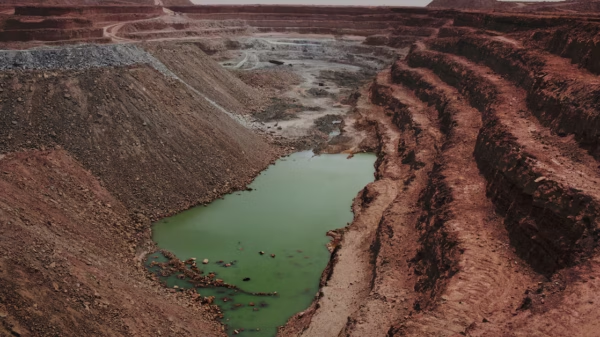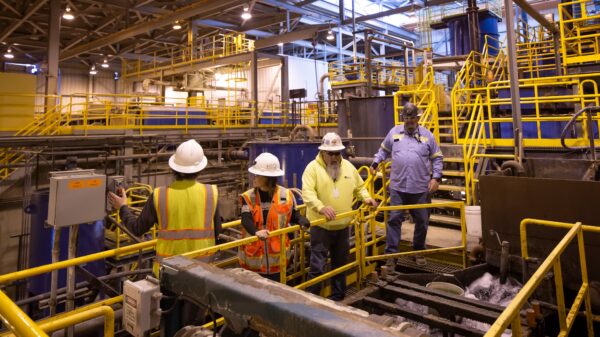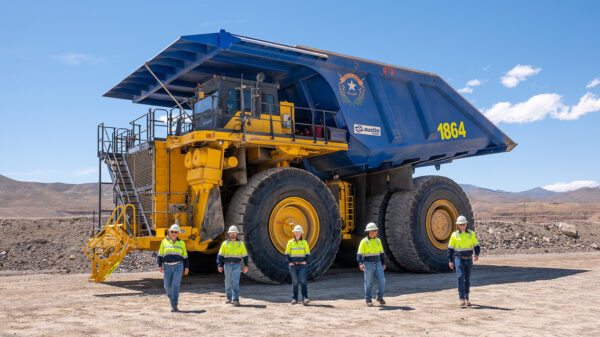A Malian court on Tuesday rejected an appeal for the conditional release of four Barrick Mining Corp (TSE: ABX) (NYSE: B) employees.
The employees have remained in custody since November 2024. They face allegations of money laundering, terrorism financing, tax violations, and other regulatory offenses. Barrick strongly disputes all charges.
The ruling comes amid escalating tensions between the company and Mali’s ruling military junta. Since January 2025, the junta has managed Barrick’s Loulo–Gounkoto gold mining complex. The state suspended gold exports and seized three metric tonnes of gold bullion. In mid-July, military helicopters removed another tonne of gold, valued at an estimated USD$117 million. Authorities may have sold the gold to support mine operations now under state control.
Alifa Habib Kone, Barrick’s legal representative, said the appeal discounted the charges as baseless. However, the judge dismissed the appeal as “unfounded.” Barrick’s operations at Loulo-Gounkoto have remained suspended since January, and tensions continue to rise.
This confrontation stems from Mali’s revised 2023 mining code. The new law increased royalties and boosted the state’s equity share in mining projects. Barrick opposes these changes, arguing that they violate existing agreements. Furthermore, the company has pushed back against efforts to renegotiate mining contracts.
In November 2024, Malian police arrested the four Barrick employees in Bamako. They have remained in prison since then. One month later, in December, Mali issued an arrest warrant for Barrick CEO Mark Bristow. Authorities accuse him of financial misconduct and money laundering. The warrant alleges violations of national financial regulations.
Read more: NevGold’s latest Nevada drill results show exceptional gold mineralization
Read more: NevGold’s latest drill results extend priority target at Limo Butte by over 200 metres
Trend showcases growing shift in regional resource policy
This aggressive stance reflects a broader regional trend. Junta-led governments in West Africa, including Burkina Faso, Niger, Guinea, and the Democratic Republic of the Congo, are asserting greater control over natural resources. These states seek to renegotiate mining contracts, tighten export rules, and claim larger shares of profits—especially with gold prices reaching new highs.
Barrick’s Malian operations are significant. The Loulo-Gounkoto complex generated USD$949 million in revenue during the first nine months of 2024. It also produced 14 per cent of the company’s total gold output. Accordingly, the stakes remain high for both Barrick and the Malian government.
Additionally, Barrick is not alone in facing pressure. In November 2024, Malian authorities detained Resolute Mining CEO Terence Holohan along with two colleagues. They were held in Bamako for discussions on taxes and operations. The Australian mining firm later agreed to pay the government US$160 million to resolve the matter. Following the settlement, Mali released Holohan and the other executives.
Furthermore, this trend highlights a growing shift in regional resource policy. Governments in Mali, Burkina Faso, and Niger are pursuing new strategies to retain a larger share of wealth from gold production. Consequently, multinational mining companies now face a more volatile political and regulatory environment.
In addition to economic motivations, many analysts believe these governments are also aiming to reduce foreign dependence. As global demand for gold remains strong, control over mining revenues has become a key political objective.
Barrick has not issued new statements following Tuesday’s ruling. However, the company continues to reject all allegations. It maintains that its agreements with Mali are legally binding and remains committed to resolving the dispute through legal and diplomatic channels.














